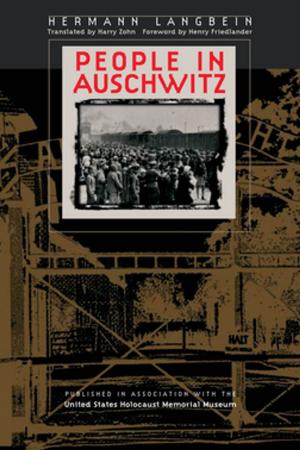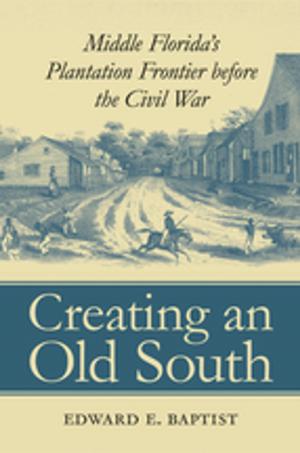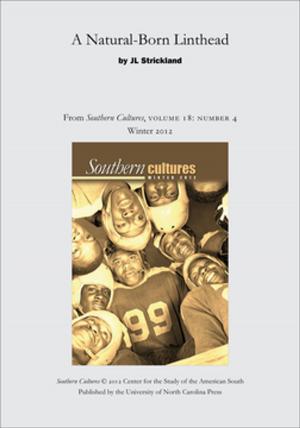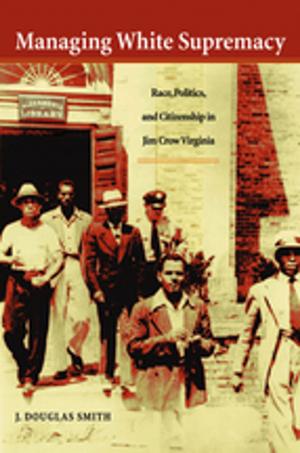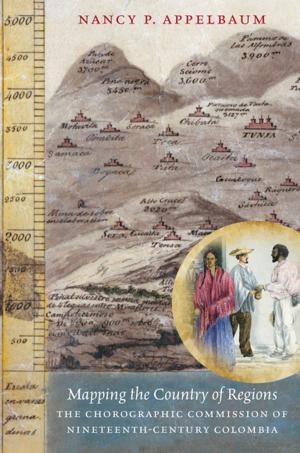The Transformation of Criminal Justice
Philadelphia, 1800-1880
Nonfiction, Reference & Language, Law, Legal History| Author: | Allen Steinberg | ISBN: | 9780807864753 |
| Publisher: | The University of North Carolina Press | Publication: | November 9, 2000 |
| Imprint: | The University of North Carolina Press | Language: | English |
| Author: | Allen Steinberg |
| ISBN: | 9780807864753 |
| Publisher: | The University of North Carolina Press |
| Publication: | November 9, 2000 |
| Imprint: | The University of North Carolina Press |
| Language: | English |
Allen Steinberg brings to life the court-centered criminal justice system of nineteenth-century Philadelphia, chronicles its eclipse, and contrasts it to the system -- dominated by the police and public prosecutor -- that replaced it. He offers a major reinterpretation of criminal justice in nineteenth-century America by examining this transformation from private to state prosecution and analyzing the discontinuity between the two systems.
Steinberg first establishes why the courts were the sources of law enforcement, authority, and criminal justice before the advent of the police. He shows how the city's system of private prosecution worked, adapted to massive social change, and came to dominate the culture of criminal justice even during the first decades following the introduction of the police. He then considers the dilemmas that prompted reform, beginning with the establishment of a professional police force and culminating in the restructuring of primary justice.
Making extensive use of court dockets, state and municipal government publications, public speeches, personal memoirs, newspapers, and other contemporary records, Steinberg explains the intimate connections between private prosecution, the everyday lives of ordinary people, and the conduct of urban politics. He ties the history of Philadelphia's criminal courts closely to related developments in the city's social and political evolution, making a contribution not only to the study of criminal justice but also to the larger literature on urban, social, and legal history.
Originally published in 1989.
A UNC Press Enduring Edition -- UNC Press Enduring Editions use the latest in digital technology to make available again books from our distinguished backlist that were previously out of print. These editions are published unaltered from the original, and are presented in affordable paperback formats, bringing readers both historical and cultural value.
Allen Steinberg brings to life the court-centered criminal justice system of nineteenth-century Philadelphia, chronicles its eclipse, and contrasts it to the system -- dominated by the police and public prosecutor -- that replaced it. He offers a major reinterpretation of criminal justice in nineteenth-century America by examining this transformation from private to state prosecution and analyzing the discontinuity between the two systems.
Steinberg first establishes why the courts were the sources of law enforcement, authority, and criminal justice before the advent of the police. He shows how the city's system of private prosecution worked, adapted to massive social change, and came to dominate the culture of criminal justice even during the first decades following the introduction of the police. He then considers the dilemmas that prompted reform, beginning with the establishment of a professional police force and culminating in the restructuring of primary justice.
Making extensive use of court dockets, state and municipal government publications, public speeches, personal memoirs, newspapers, and other contemporary records, Steinberg explains the intimate connections between private prosecution, the everyday lives of ordinary people, and the conduct of urban politics. He ties the history of Philadelphia's criminal courts closely to related developments in the city's social and political evolution, making a contribution not only to the study of criminal justice but also to the larger literature on urban, social, and legal history.
Originally published in 1989.
A UNC Press Enduring Edition -- UNC Press Enduring Editions use the latest in digital technology to make available again books from our distinguished backlist that were previously out of print. These editions are published unaltered from the original, and are presented in affordable paperback formats, bringing readers both historical and cultural value.

